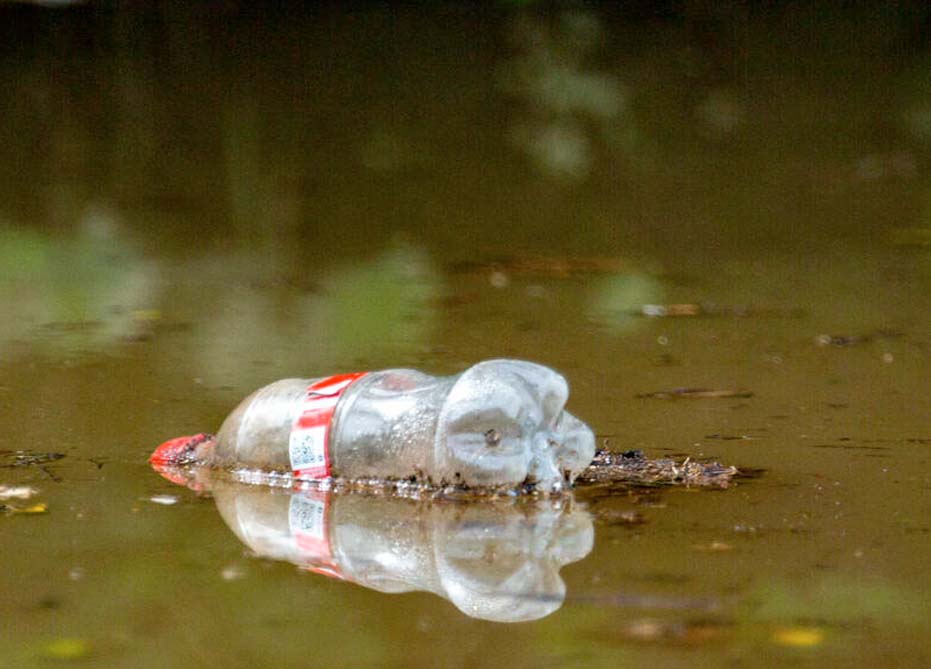I attended the UN Global Plastics Treaty meeting in November last year as part of the Greenpeace delegation. I was able to observe, for example, the interventions that governments made, including our own government and those of our neighbouring countries. It was a hybrid meeting, which meant we didn’t need to travel to Uruguay. As long as you had access to a capable device and a good internet connection, you could participate in most of the meetings as long as the rooms had the technology to make it happen.
The next meeting will not be a hybrid meeting. It’s in Paris, and the only way to participate in the very important decision-making that is on the agenda, is to be there in person.
Not everyone recognises the barriers this presents for some member states and especially civil society. Even a hybrid format is not completely equitable, but for those living closest to the issue and those who will be most affected by any action or inaction to be present is a massive undertaking. Member states can take up to five delegates, but small islands and developing states will struggle to send full contingents. Financial cost is obvious, not just to travel but also redirecting time away from their communities.
Civil society presence can be even harder. Environmental, climate and social justice activism and advocacy is sadly undervalued. Many roles are voluntary and grassroots organisations surviving on a shoestring budget would struggle to send a delegation. In some countries, it’s the only way for indigenous people to be present. Here in Aotearoa, it is no different. Our government has been participating in talks for a plastics treaty for many months. They have also made strong statements about the importance of indigenous participation and our knowledge but are yet to walk their talk.
I intend to be at the Global Plastic Treaty meeting. I don’t make this decision lightly, and I have struggled for months with the decision to be present or not. Here at Greenpeace we have more resources than many groups, but we too have strict budgets for both our finances and our carbon, so a trip to Paris is a big decision.
I struggled inwardly, as well. There have been feelings of guilt, and I had to think hard about whether I could truthfully defend the travel. I grew up simply, and long-haul flights have always been something that other people did. And the thought of being in a strange place is intimidating and scary for me, not to mention the loved ones and responsibilities that need to be taken care of in my absence. I know that many people generously support us in various ways so we can do the mahi. I’m hyper-aware of how we value and utilise this support and, of course, the impact that this trip would have on Papatūānuku.
The whole situation feels unfair and inequitable. I am part of a small coalition of indigenous people from around the world actively doing this work. I can count those of us making this Paris meeting on my hands. Some of those most affected communities would struggle to access the technology to participate virtually, let alone in person.
The oil industry and consumer goods giants like Coca-Cola and Nestle will be present with full contingencies and lobbying hard to weaken the ambition of the treaty and protect their profits. But if I don’t go, my silent boycott won’t be heard. And it doesn’t demonstrate any solidarity with our allies in the coalition and on the ground.
And I have a lot to say, and a lot of people to represent: my family, my communities, Greenpeace supporters, those who can’t be there and those who are yet to be born. For our climate and our planet, and for our rights, health and livelihoods.
The Global Plastics Treaty is a significant milestone in the fight against plastic pollution. So, we must get it right. We need a strong and ambitious treaty that will limit plastic production and use, keep oil and gas in the ground, hold big polluters accountable for their excessive plastic production and build refill and reuse systems. This is what we need, this is what the world needs. This treaty will protect the climate and deliver a clean, safe planet for us and for our children.
This article was written by Greenpeace Aotearoa plastics campaigner Juressa Lee. Juressa is tangata whenua (indigenous to Aotearoa New Zealand) and tangata Moana (indigenous to the Pacific). Janessa is a recognised thought leader in New Zealand for their many years of work to protect nature and champion indigenous knowledge, including campaigning to save urban forests, to end plastic pollution at source and to promote indigenous solutions as a pathway for overcoming the intersecting climate change, biodiversity and inequality crises.

Call on the NZ Government to ban unnecessary single-use plastic bottles* in NZ, and to incentivise reusable and refillable alternatives.
